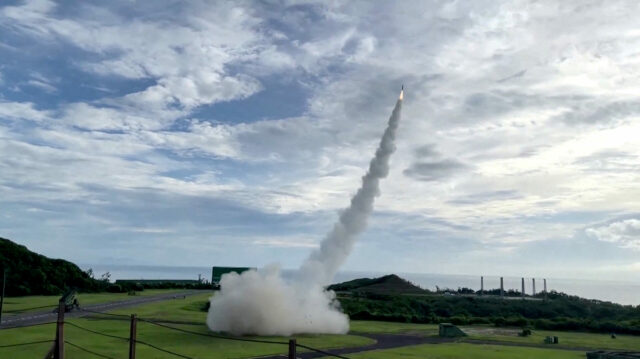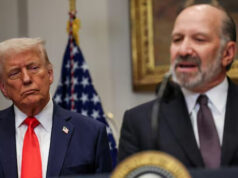The Taiwan cabinet said on Thursday that it will increase defence spending by 7.7% next year. This outpaces the expected economic growth for the year. This move comes in as Taiwan adds more fighter jets and missiles to its weaponry, against a rising Beijing threat.
China views democratically-governed Taiwan as its own territory. Hence, it has ramped up military and political pressure over Taiwan to assert these claims. Taipei, however, has strongly rejected these claims.
Taiwan’s cabinet has said their 2025 defence spending would rise by 7.7% year-on-year to T$647 billion ($20.25 billion). This accounts for 2.45% of their GDP, up from 2.38% this year. It also exceeds the government’s expectation for economic growth of 3.26% for 2025.
Taiwan aims to buy new fighter jets and speed up its missile production. A special budget worth T$90.4 billion is reserved from the defence budget for this. This amount is part of the military spend announced in 2021, of T$240 billion spread over five years.
Hsieh Chi-hsien, head of the defence ministry’s comptroller bureau, said defence spending reaching 3% of GDP was a goal they were hoping to reach. He added that at the moment Taiwan’s defence spending is “growing steadily”.
“We will not join in an arms race with other countries. We will increase (spending) steadily according to our needs,” he said.
Future spending also depends on whether Taiwan could acquire “key and important” equipment, Hsieh added, without elaborating.
RISING CHINA THREAT
Due to the rising threat of China, the Taiwanese government has time and again made military modernization a priority. It has pledged to spend more on defences, including developing made-in-Taiwan submarines.
The Chinese air force flies into the skies near Taiwan almost daily. China also staged war games around the island in May. This was shortly after Taiwanese President Lai Ching-te took office. Beijing has often branded him as a “separatist”. Lai openly rejects China’s sovereignty claims, saying only Taiwan’s people can decide their future.
Taiwan’s defence budget still needs to be passed by parliament, where the ruling Democratic Progressive Party (DPP) lost its majority in January elections.
Taiwan’s main opposition party, the Kuomintang, has repeatedly expressed its support for firming up the island’s defences. However, it is currently involved in a standoff with the DPP about contested reforms to give parliament greater oversight powers that the government says is unconstitutional.
China is also rapidly modernising its armed forces, with new aircraft carriers, stealth fighter jets and missiles.
In March, China announced a 7.2% rise in its defence spending for this year. It has also outpaced its economic growth target of around 5% for 2024. America, Taiwan’s most important arms dealer, has pushed Taiwan several times to modernise its military and spend on defence.
(with inputs from Reuters)





